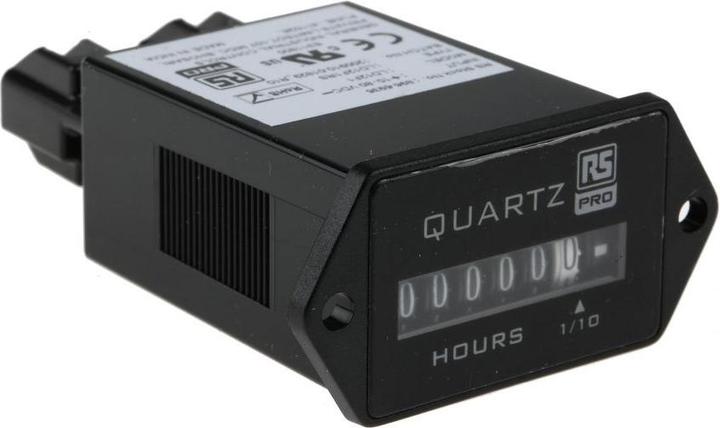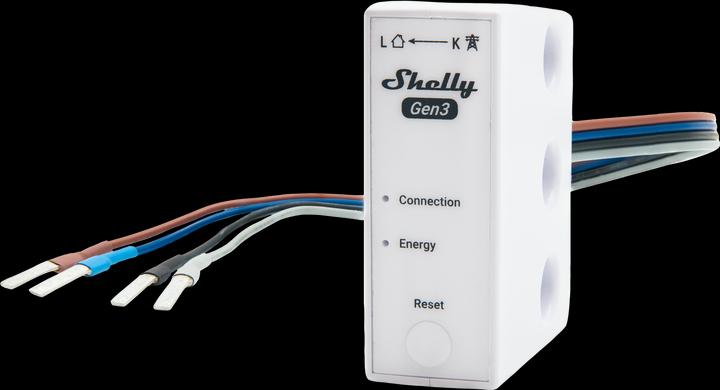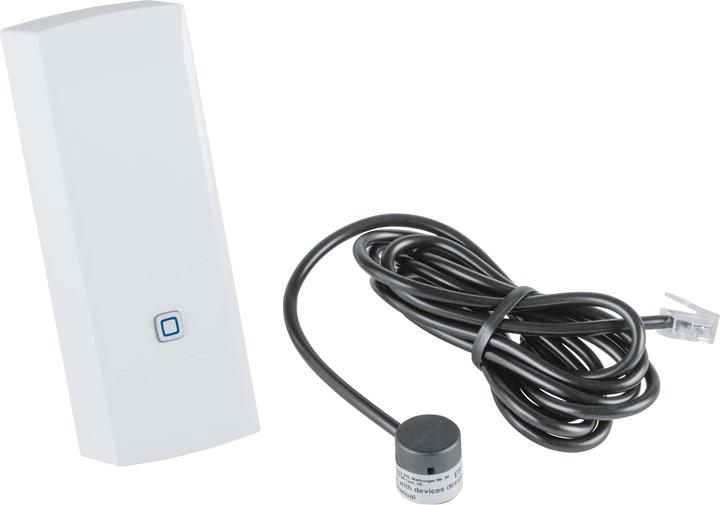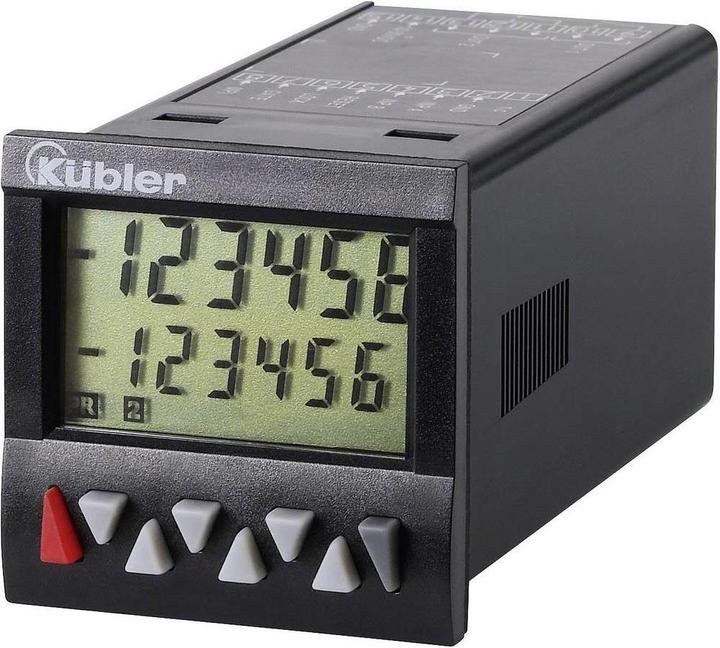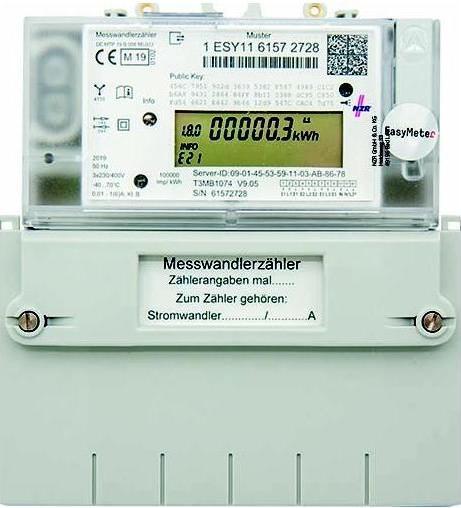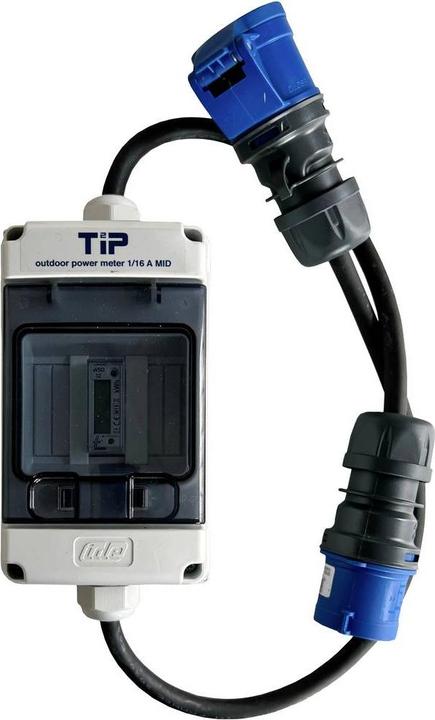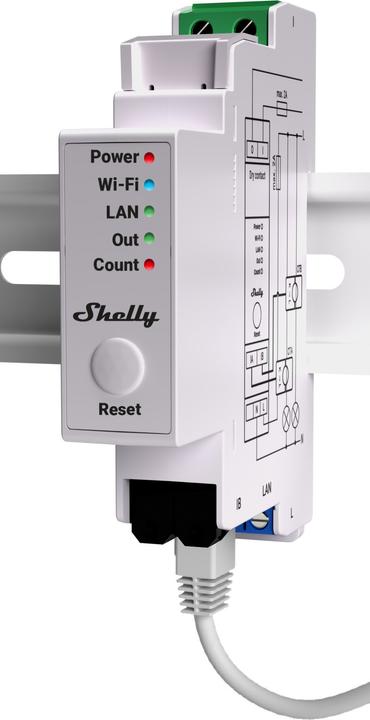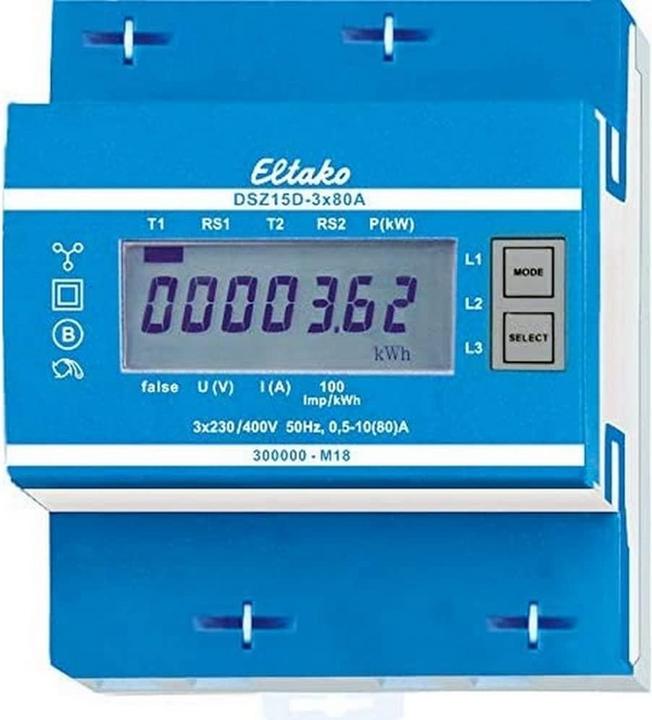
Too Many Energy Monitors? Find the Right One for You
Discover five essential factors that will guide you in choosing the perfect energy monitor for your needs.
Last updated 6 days ago. Automatically generated content.


Select options and limit the number of products
Energy meter type determines the method of measuring electricity usage, impacting accuracy, efficiency, and functionality of the energy monitor. Choosing the right type is crucial for effective energy management, helping users to track consumption and optimize usage for cost savings.
Popular options (you can select more than one)
Energy meter
Typical price
80,– to 320,–Measures total energy consumption in kilowatt-hours, providing a clear overview of usage.
Ideal for users seeking a straightforward method to monitor overall electricity usage and manage energy costs.
Bestseller
Multifunction measuring device
Typical price
180,– to 640,–Offers comprehensive measurement capabilities, including voltage, current, power factor, and more.
Recommended for detailed energy analysis and users who need precise data for optimizing energy efficiency.
Bestseller
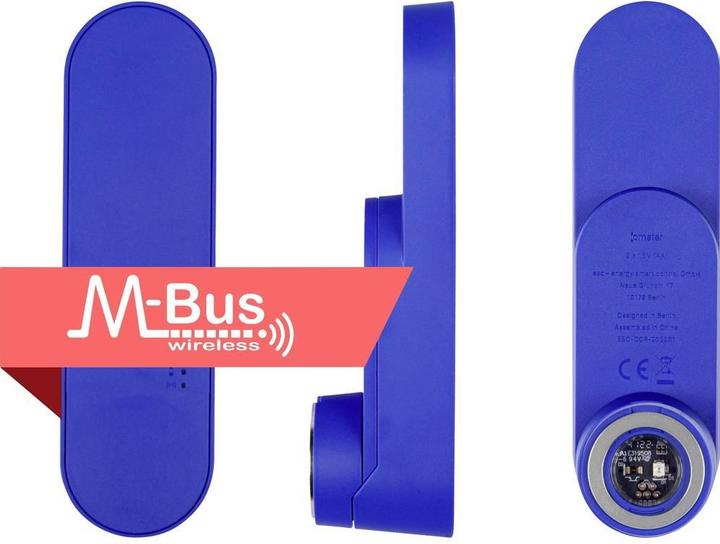
IOmeter W-MBus1
Operating hours counter
Typical price
33,– to 100,–Tracks the duration of device operation, useful for maintenance scheduling.
Beneficial for users who need to monitor equipment usage and plan preventive maintenance effectively.
Bestseller
Maximum current refers to the highest amount of electrical current an energy monitor can handle safely. Choosing the appropriate maximum current is crucial for ensuring accurate monitoring and preventing overloading, especially in high-consumption settings.
Popular options
Up to 30 A
Typical price
89,– to 570,–Suitable for smaller households or low-consumption devices, efficiently handling typical household currents.
Ideal for users with basic energy monitoring needs, preventing unnecessary expenses on higher capacity models.
Bestseller
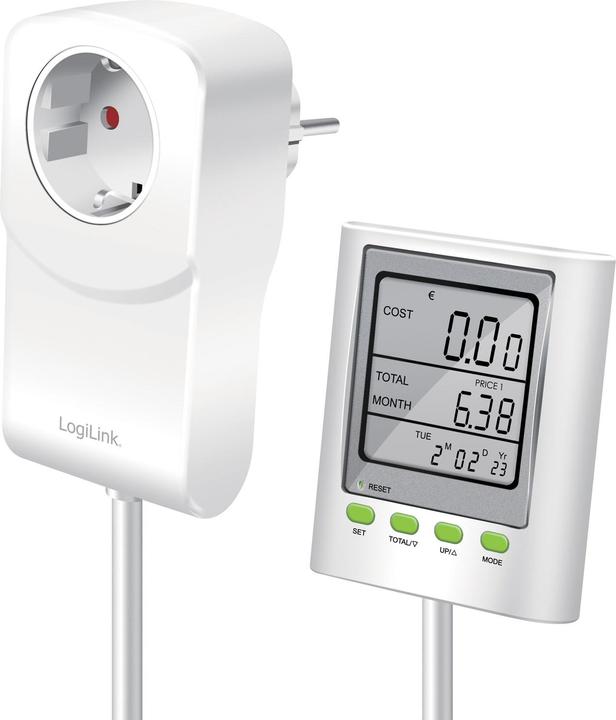
LogiLink Energy cost meter with CO2 emission calculation &extension cable
31 - 60 A
Typical price
51,– to 150,–Designed for medium-sized households or small businesses, accommodating moderate energy usage.
Offers a balanced solution for those needing more capacity without moving to industrial-grade monitors.
Bestseller
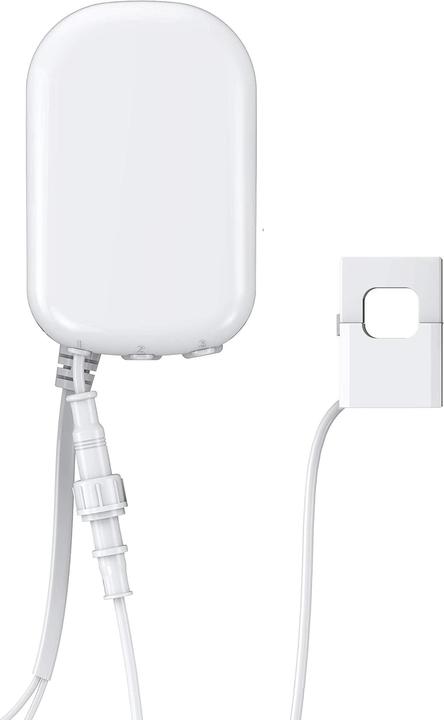
Aeotec Aeon Labs clamp ammeter with one clamp GEN5
61 - 100 A
Typical price
120,– to 300,–Capable of handling high current demands, suitable for large homes or commercial settings.
Ensures reliable monitoring for extensive energy usage, preventing overloads and ensuring safety.
Bestseller
The IP code, or Ingress Protection rating, classifies and rates the degree of protection provided by enclosures against intrusion, dust, and water. Choosing the right IP code is crucial for ensuring the energy monitor's durability and performance in various environments, particularly where exposure to elements is a concern.
Popular options (you can select more than one)
IP20
Typical price
140,– to 420,–Offers protection against solid objects larger than 12mm, but no protection against water.
Suitable for indoor use where there is no risk of water exposure, providing basic protection.
Bestseller
IP65
Typical price
61,– to 400,–Provides complete protection against dust and low-pressure water jets from any direction.
Ideal for outdoor use or areas with potential water exposure, ensuring reliable performance and longevity.
Bestseller
IP54
Typical price
160,– to 490,–Protects against limited dust ingress and water splashes from any direction.
Recommended for environments with occasional water exposure, balancing protection and cost-effectiveness.
Bestseller
IP67
Typical price
290,– to 750,–Ensures complete dust-tight protection and immersion in water up to 1 meter for 30 minutes.
Perfect for harsh outdoor conditions or areas prone to flooding, offering superior durability and reliability.
Bestseller
Nominal voltage refers to the standard voltage level at which an energy monitor operates, impacting compatibility with different electrical systems. Choosing the appropriate nominal voltage ensures optimal performance and safety when monitoring energy consumption in various environments.
Popular options
Up to 230 V
Typical price
43,– to 270,–Suitable for residential and small commercial spaces with standard electrical systems.
Provides reliable monitoring in environments where typical household voltage is used.
Bestseller

Aeotec Aeon Labs clamp ammeter with one clamp GEN5
231 - 300 V
Typical price
80,– to 370,–Designed for larger commercial settings or specialized equipment requiring higher voltage.
Ensures accurate energy tracking in environments with increased voltage demands.
Bestseller
301 - 500 V
Typical price
140,– to 400,–Ideal for industrial applications and areas with heavy-duty electrical equipment.
Offers robust monitoring in high-voltage environments, enhancing efficiency and safety.
Bestseller
The brand factor in energy monitors is pivotal for customers seeking reliable and efficient energy-saving solutions. Brands like Shelly and Voltcraft are known for their technological innovation and user-friendly designs, which significantly enhance user experience and energy management.
Popular brands (you can select more than one)
Shelly
Renowned for its smart home integration and wireless control capabilities.
Ideal for tech-savvy users looking to automate and optimize energy usage.
Bestseller
Voltcraft
Known for its precise measurement and robust build quality.
Offers reliable performance for consumers needing accurate energy monitoring.
Bestseller

Voltcraft SEM5000 Energy cost meter Cost forecast Alarm function Electricity tariff
Eltako
Specializes in eco-friendly and energy-efficient solutions.
Perfect for environmentally conscious users aiming to reduce energy consumption.
Bestseller
Orno
Offers affordable and user-friendly energy monitoring devices.
Great for budget-conscious users seeking essential features and ease of use.
Bestseller
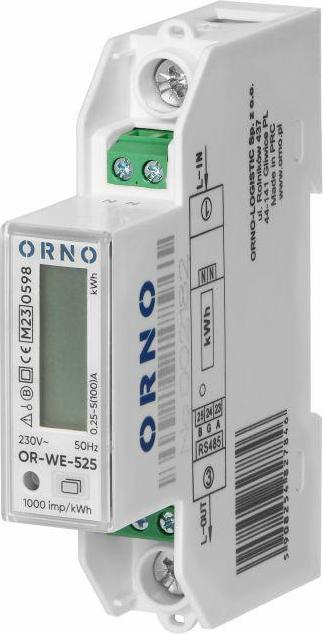
Orno Single-phase electricity meter, 100 A, RS-485 connection, MID, 1 module, DIN TH-35 mm, PV
Max Hauri
Recognized for its Swiss engineering and high-quality standards.
Suitable for those prioritizing durability and precision in energy management.
Bestseller
